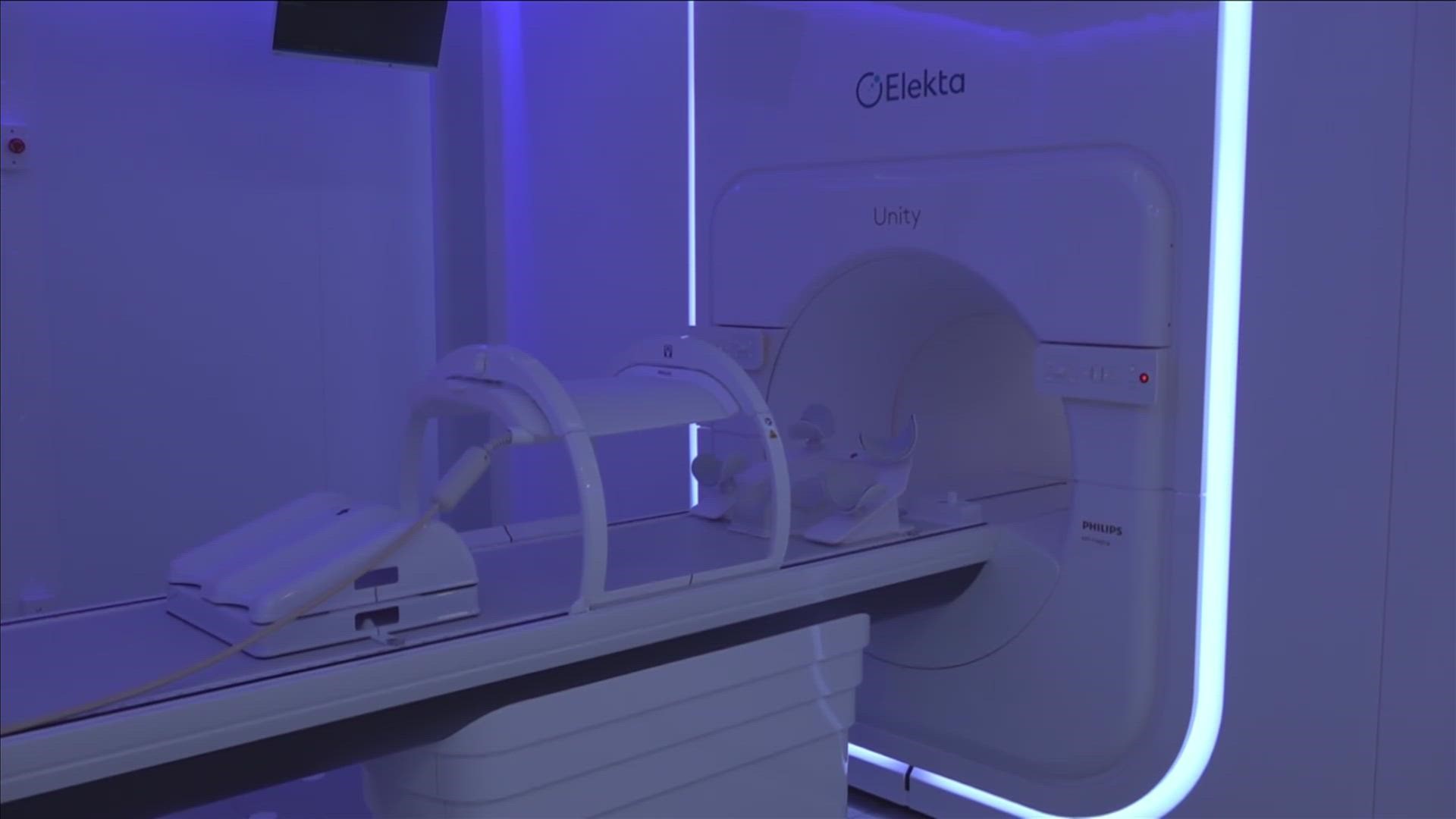MEMPHIS, Tenn. — The Methodist Cancer Institute has some new technology that doctors said could improve the long-term outcomes for some patients undergoing radiation treatments.
“Today what we are doing is kind of a blessing ceremony for our MRI Linear Accelerator. It’s been here. We’ve got it up and running. We are treating patients and we just wanted to introduce it to the community,” said Dr. Lloyd Geddes, Medical Director of the Methodist Cancer Institute.
The doctors said this new technology allows them to really personalize individual cancer treatments.
“It combines an MRI, magnetic resonance imaging, which is a very detailed picture of the body whether it be cancer or healthy tissues. That’s combined for the first time ever with a linear accelerator. Which is the machine that actually delivers the radiation to treat cancer. So, they have sort of squished them together,” said Dr. Lillian Rinker, Medical Director of Radiation Oncology at the Methodist Cancer Institute.
“This is cutting edge, revolutionary technology,” said Dr. Geddes. “With this new technology we have the ability to correct real-time where the beam is and target directly to the tumor and be able to kill cancer cells.”
They said the technology causes less toxicity to the surrounding organ, which means better long-term outcomes.
“A typical radiation treatment might be 20 minutes, this might be up to an hour because we are re-planning on the fly which we have never done with any other radiation treatment,” said Dr. Rinker. “I really expect that as time progresses, we have better cancer cure rates with many fewer side effects.”
“Certain types of cancers, particularly pancreatic cancers, prostate cancers and other GU cancers, that are more on the forefront … and that’s what we are mostly using the technology for. But pretty soon, every type of cancer we will be able to use this technology in,” said Dr. Geddes.
And the technology is a big boost for the Memphis health scene.
“We are one of eight institutions in the country that actually have this technology and it is going to transform the way we treat cancer patients,” said Dr. Geddes.
“It’s just amazing. It puts us up with University of Wisconsin, M.D. Anderson, Boston. I mean, it puts us with the elite medical centers in the country,” said Dr. Rinker.
“Memphis is famous for a number of healthcare disparities as it pertains to our African-American population and people of color, and with a lot of the technological advances that we have here, we will be able to cut into that,” said Dr. Geddes.

